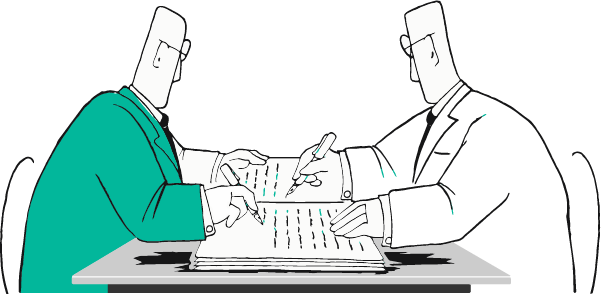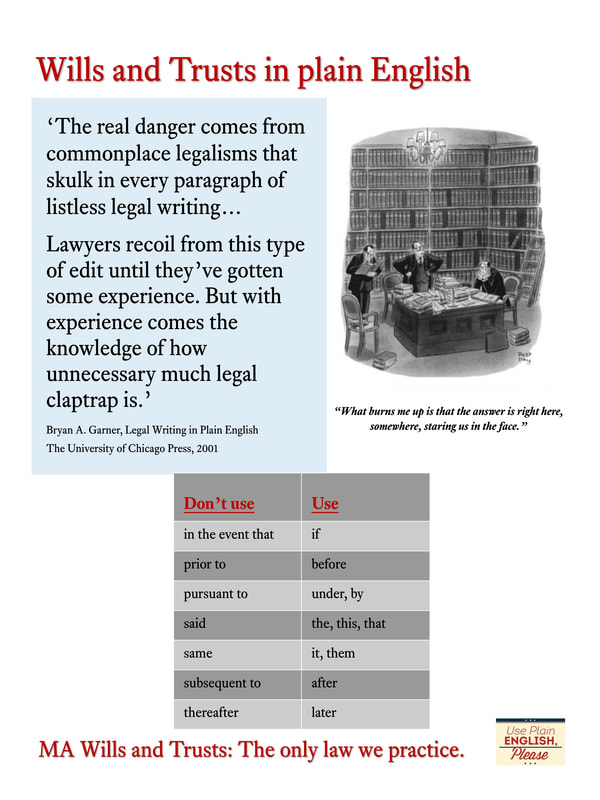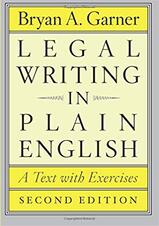|
One of over a dozen books written by Bryan Garner
The book was a major influence on my professional work, I've read others he wrote. |
"Legal drafting is a technical subject. It has to be precise as reasonable, given the time constraints. I aim for conciseness and to be understandable in all aspects of my work. Keep in mind that Massachusetts has an estate tax, so some documents need tax provisions. These tend to be dense. But apart from these tax provisions, I work to eliminate many needless words that make reading legal documents difficult and even nearly impossible to comprehend. I don't always succeed. But I have this attitude. We want to -
Also, I want our documents to -
WHAT IS PLAIN ENGLISH IN LAW? I want you (and your family members after you) to more fully understand your estate planning. Legal documents that include those wishes are technical (usually tax-driven) documents with much required precise language. Effort can be expended by us lawyers so you can better understand them. As usual, finding the time and energy is the enemy for quality and understanding. With you in mind, I try to use simpler explanations, eliminate needless words, and be typographically sensitive. Let's cut the crap... Lawyers' writing is notorious for being overly complicated and full of needless words and phrases. For many years (centuries), the public has had this concern. For decades, legal scholars and attorneys have highlighted these issues. I've been reading about the plain English subject for 15+ years. I work daily to improve my native, somewhat weak skills. Like most people, I don't enjoy reading legal documents that need a good, serious edit to be more readable. The theory behind Plain English I consider attorney author Bryan Garner to be the leading advocate for a change to a more direct writing style. He's written about 20 books, with his newest being 'Garner's Guidelines for Drafting & Editing Contracts.'
Another book I thoroughly enjoyed was Kenneth Adams' 'Adams on Contract Drafting.' This book explains that in any legal document, we use roughly seven different categories of language. Each category serves a different function.
My documents are plainER, not plain I work hard to make my writing as clear as possible. (By the way, I try to find the time to edit and edit every day, as it is a consistent issue). And, because some legal documents have intricate tax or trust law meaning, not all aspects of our documents are easy to understand without at least a second re-reading. These tax provisions are sometimes needed because Massachusetts and the IRS continue to have an estate tax. To better deal with these facts, and to work towards lower estate tax, tax provisions are in some documents. Typically, it is the Massachusetts estate tax of assets over $1 million that is the biggest problem. Your gross taxable estate includes all you own, in any form. Your estate includes a residence, IRAs, 403(b), life insurance, and other assets. In a nutshell, we need less than simple language for some documents. So, maybe 'plainER' better describes some of our documents. However, apart from these special provisions, I work hard to eliminate much of the needless words that make reading legal documents difficult - sometimes nearly impossible. Living and working in Lexington, our clients live here and the nearby localities of Winchester, Belmont, Waltham, Lincoln, Bedford, Concord, Burlington, Carlisle, Chelmsford, Cambridge, Boston, Somerville, and Watertown, MA. And others. Working near Boston, more people want a detailed explanation. Explain Cleary. Documents in about 5 weeks. Highly educated people amass more. It is an area with many people at risk of estate tax and other issues. Lawyers differ in their approach to language, layout, and content. Get at sample of plain English. Here are some thoughts on revocable living trusts for residents near us in Lexington, MA, where I live and work.
I (usually) don't use two or three words when one word nicely does the job.
|
Massachusetts Wills & Trusts
33 Bedford Street, Suite 13, Lexington, MA 02420
(781) 863-8606 | [email protected]
Wills ∙ Trusts ∙ Power of Attorney ∙ Health Care Proxies
33 Bedford Street, Suite 13, Lexington, MA 02420
(781) 863-8606 | [email protected]
Wills ∙ Trusts ∙ Power of Attorney ∙ Health Care Proxies
Most middle-aged people aren’t ready for their inevitable death. We make estate planning simple, affordable, and quick. So people can live in peace, knowing their affairs are in order.
The material is provided for educational and informational purposes only and should not be construed as legal advice. This Alert may constitute attorney advertising and is not intended to communicate with anyone in a jurisdiction where such an Alert fails to comply with all laws and ethical rules of the jurisdiction.



